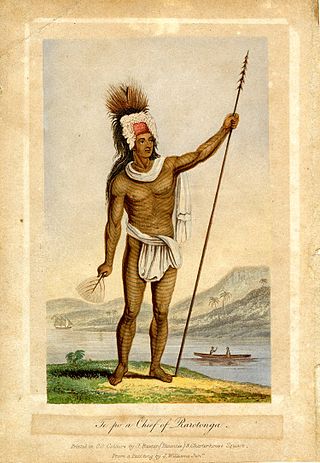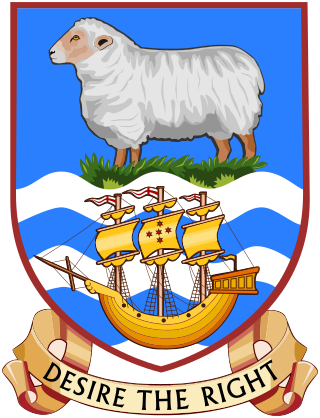
The Cook Islands is an island country in Polynesia, part of Oceania in the South Pacific Ocean. It consists of 15 islands whose total land area is approximately 236.7 square kilometres (91 sq mi). The Cook Islands' Exclusive Economic Zone (EEZ) covers 1,960,027 square kilometres (756,771 sq mi) of ocean. Avarua is its capital.

The Cook Islands are named after Captain James Cook, who visited the islands in 1773 and 1777, although Spanish navigator Alvaro de Mendaña was the first European to reach the islands in 1595. The Cook Islands became aligned to the United Kingdom in 1890, largely because of the fear of British residents that France might occupy the islands as it already had Tahiti.

Since becoming independent of the United Kingdom in 1970, Fiji has had four constitutions, and the voting system has changed accordingly.

The Legislative Council of Fiji was the colonial precursor to the present-day Parliament, which came into existence when Fiji became independent on 10 October 1970.

The Parliament of the Cook Islands is the legislature of the Cook Islands. Originally established under New Zealand administration, it became the national legislature upon independence in 1965.

The Legislative Assembly of the Falkland Islands is the unicameral legislature of the British Overseas Territory of the Falkland Islands. The Legislative Assembly replaced the Legislative Council when the new Constitution of the Falklands came into force in 2009 and laid out the composition, powers and procedures of the islands' legislature.

General elections were held in the Cook Islands on 30 March 1978 to elect members of the Legislative Assembly. The result was a victory for the Cook Islands Party (CIP) of Premier Albert Henry, which won 15 of the 22 seats. The Democratic Party won the remaining seven seats.
Marguerite Nora Eikura Kitimira Story,, was the Speaker of the Legislative Assembly of the Cook Islands from 1965 to 1979. She was the first female cabinet member in the Cook Islands and the first woman in the Commonwealth to become speaker of a national parliament.

The Ascension Island Council is an elected body that provides advice to the Administrator of Ascension Island on matters relating to the governance of Ascension Island. The Council is made up of either five or seven Councillors, depending on the number of candidates standing for an election, and its meetings are chaired by the Administrator. The Island's constitution requires the Governor and Administrator to consult with the Council when making laws for Ascension Island. The Governor and Administrator are not bound to accept the advice of the Council but the Council has the right of appeal to the British Government.

General elections were held in the Solomon Islands for the first time on 7 April 1965.

The Legislative Council of Kenya (LegCo) was the legislature of Kenya between 1907 and 1963. It was modelled on the Westminster system. It began as a nominated, exclusively European institution and evolved into an elected legislature with universal suffrage. It was succeeded by the National Assembly in 1963.

General elections were held in Fiji in August 1956; voting took place in the Eastern constituencies between 11 and 18 August, and on 18 August in all other constituencies.

General elections were held in the Cook Islands in 1953. The elections took the form of an election to Rarotonga Island Council, whose sole European member also automatically became the only elected member of the Legislative Council.

General elections were held in the Cook Islands on 13 October 1958, the first under universal suffrage.

General elections were held in the Cook Islands in May 1961.
Henley Robert McKegg was a New Zealand-born Cook Islands politician. He served as a member of the Legislative Council between 1953 and 1958.

General elections were held in the Territory of Papua and New Guinea between 15 February and 15 March 1964. They were the first elections in the territory held under universal suffrage. Voter turnout among enrolled voters was 65%.

Dick Charles Brown was a Cook Islands businessman and politician. He served as a member of the Legislative Assembly between 1958 and 1965, and became the territory's first Leader of Government Business in 1963.

Legislative Council elections were held in the Cook Islands in 1947, the first after the establishment of the new legislature.

The Cook Islands Progressive Association (CIPA) was the first indigenous political organisation in the Cook Islands. Initially focused on economic advancement for the islands, it came to advocate for greater self-rule. It was an ancestor of the Cook Islands Party.











